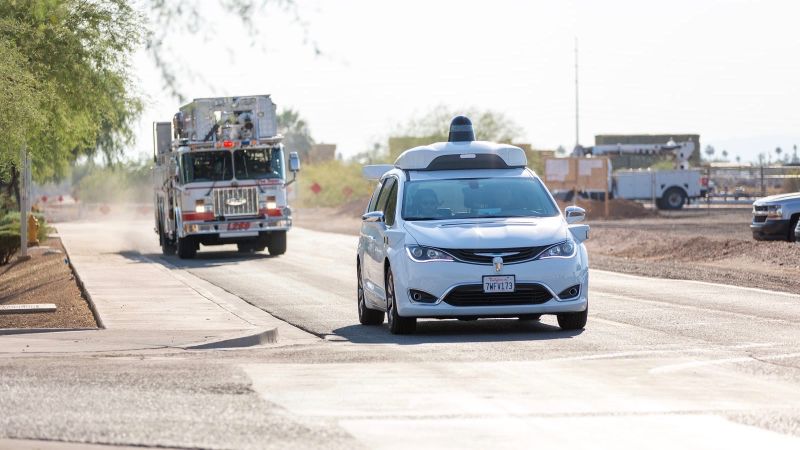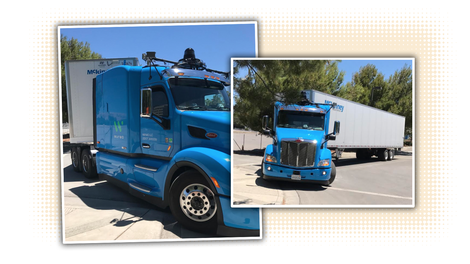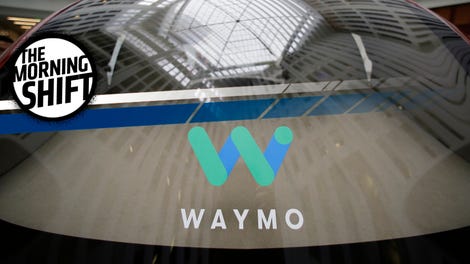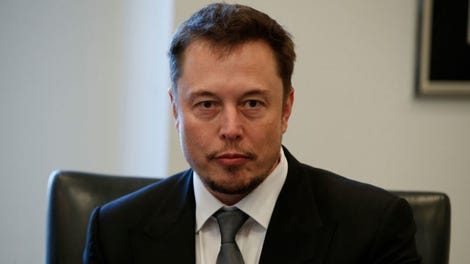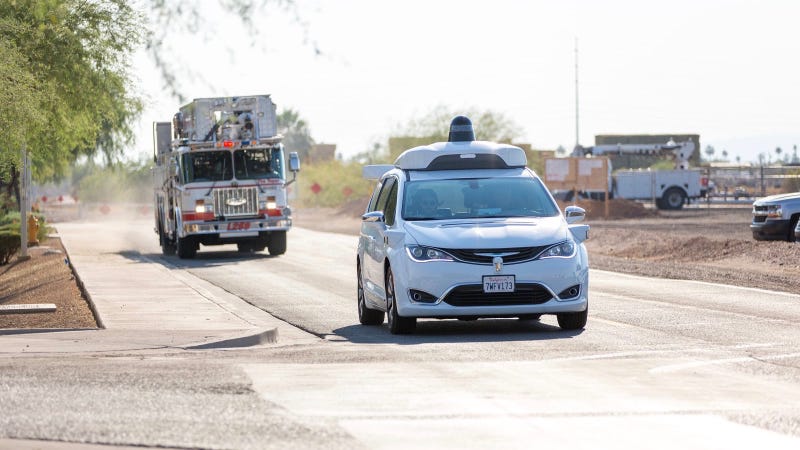
Waymo, Google’s driverless car developing unit, conducted an “emergency vehicle testing day” in the city of Chandler, Arizona last month to help driverless cars better understand the sights and sounds of police cars and fire trucks. Now, documents and interviews with the city and Waymo reveal Waymo did not pay Chandler for using four of its emergency vehicles, and the parties did not sign a formal agreement that would hold Waymo liable in the case of an accident.
Waymo held a demonstration and media event on June 28 to record and map emergency vehicles to help driverless cars yield.
Advertisement
The test occurred from 5:15 p.m. to 9:15 p.m. to gather data during daylight, dusk and nighttime. Police sedans, motorcycles and firetrucks drove in front of Waymo’s self driving cars while sensors gathered information. Waymo’s vehicles were not operating autonomously at the time.
Advertisement
A Waymo spokesperson confirmed the company did not pay for the use of emergency vehicles during this test, and the city did not have any records of agreements associated with the emergency vehicle demonstration.
The company and the city had, however, “a longstanding relationship” prior to the emergency testing day. Waymo had been testing its driverless cars in Chandler since April of last year, to expose its cars to distinct desert conditions like extreme heat and dust storms. The driverless car company also opened a Chandler operations center in October 2016, where they hired local residents to operate their cars.
Advertisement
Matt Burdick, communications and public affairs director, said the city created a “mutually beneficial” environment with Waymo: the city supports technology research in the hopes of producing local jobs and receiving public safety and mobility benefits from self-driving technology.
“Participating in Waymo’s emergency vehicle test advanced the research and development of this technology, while offering emergency responders the opportunity to interact with self-driving vehicles,” Burdick said in a statement to Jalopnik.
A mutually beneficial relationship isn’t unusual between corporations and local governments, but agreeing to resource exchanges without a written or formal agreement raises red flags, according to John Forrer, director of the Institute for Corporate Responsibility at George Washington University. Furthermore, Forrer said liability for accidents during these tests could get tricky since compensation was not exchanged between the two parties.
Advertisement
Burdick said each party, Waymo and Chandler, were responsible for their own liability.
Chandler’s most recent budget proposal notes field operation machinery and equipment expenditures last year amounted to $298,087. The field operations insurance cost the city more than $22,000, and repairs and maintenance cost over $52,000—a significant amount of money the city would have to cough up if the driverless car test went south.
Advertisement
Waymo and Chandler carefully administered the test to ensure an accident would not occur. The test occurred on a closed roadway, and Waymo engineers prepared Chandler fire and police personnel with test scenarios. The test themselves involved only one emergency vehicles at the time.
The fuzzy line between driverless car companies and the public resources they use for testing speaks to a broader issue: whether local governments are sacrificing money at the expensive of self-driving research.
Advertisement
Mary Peters, the former Secretary of Transportation under former President George W. Bush, recently argued driverless cars should pay to operate on public roads. Though potential game changers in safety and economic growth, driverless cars strip the government of tax revenue. Robot cars that perfectly obey traffic laws will reduce the millions of dollars that cities and states collect in traffic fines, Peters said, and electric autonomous cars make valuable gas taxes obsolete.
Advertisement
Some states have already seen the issue with driverless cars operating for free on public roads. Massachusetts proposed a fee of at least $0.025 for every mile a self-driving vehicle drives. Tennessee already established a fee for the applications of AVs in the state, including a $0.01/mile or $0.026/mile tax depending on the vehicle size.
Waymo’s relationship with Chandler raises an important question in how much self-driving car companies are leveraging brand names and bold promises of economic prosperity to take advantage of local government resources—and the taxpayer money that funds them.

